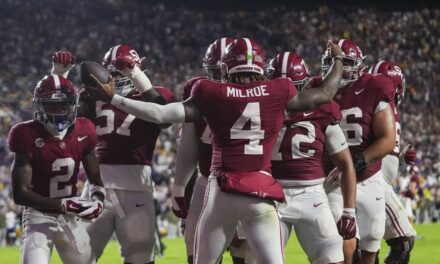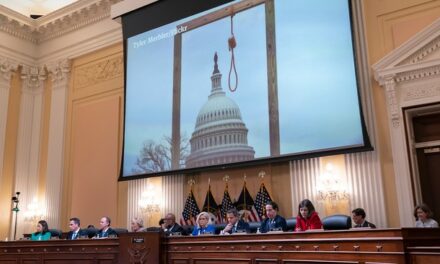We support our Publishers and Content Creators. You can view this story on their website by CLICKING HERE.

The Texas Supreme Court on Friday ruled against state lawmakers who tried to delay the execution of Robert Roberson, who was convicted for the 2002 death of his two-year-old daughter, Nikki.
Advertisement
The decision comes amid multiple unresolved questions surrounding the prosecution’s use of the “shaken baby syndrome” theory to convict him. If he is executed, he will be the first to meet this fate under the theory.
Roberson’s case gained attention after the Texas House Criminal Jurisprudence Committee issued a subpoena in October for the inmate to testify about his case. The move was aimed at delaying his execution, which was set for October 17.
Read related: OPINION: The Death Penalty Needs to Die
The court argued that “Categorically prioritizing a legislative subpoena over a scheduled execution…would become a potent legal tool that could be wielded not just to obtain necessary testimony but to forestall an execution.”
The effort to delay Roberson’s execution was spearheaded by Committee Chair Joe Moody (D-El Paso) and state Rep. Jeff Leach (R-Plano), who insisted that the inmate’s testimony was critical to evaluating the legitimacy of his conviction under a 2013 Texas law allowing challenges based on advances in forensic science.
“The Supreme Court strongly reinforced our belief that our Committee can indeed obtain Mr. Roberson’s testimony,” Moody and Leach said in a joint statement.
Roberson’s conviction has been scrutinized and criticized because of the evolving understanding of shaken baby syndrome. His legal team presented evidence showing that Nikki’s death was more likely caused by severe pneumonia and septic shock. This evidence was overlooked during the trial.
Advertisement
“Given the overwhelming new evidence of innocence, we ask the State of Texas to refrain from setting a new execution date,” said Roberson’s lawyer, Gretchen Sween. “Nikki’s death was a tragedy, not a crime; Robert is innocent.”
The shaken baby syndrome has been called into question on several occasions – especially in Roberson’s case.
This development brings to light broader concerns about the validity of shaken baby syndrome as a legal theory. Medical experts and researchers have increasingly challenged the assumption that the triad of symptoms, including brain swelling, retinal hemorrhages, and subdural hematomas, constitute conclusive evidence of abuse.
Studies have shown that these symptoms can be caused by multiple medical conditions that do not involve abuse. These include infections, accidents, and even genetic disorders.
Roberson’s lawyers contended that Nikki’s death was caused by severe undiagnosed pneumonia, not abuse. Court documents indicate that the child had a 104.5-degree fever in the days leading up to her death, The Austin American-Statesman reported. She also had a history of chronic infections and breathing problems.
Roberson has received an outpouring of support from politicians, government officials, and media figures. More than 80 members of the Texas House joined the calls for clemency. U.S. Supreme Court Justice Sonia Sotomayor pointed out that “Mounting evidence suggests that Roberson committed no crime at all.”
Advertisement
Read More: Texas Lawmakers Intervene to Halt Robert Roberson’s Execution for Death of Two-Year-Old Daughter
On the other hand, Texas Attorney General Ken Paxton has defended Roberson’s conviction, claiming the jury did not rely solely on shaken baby syndrome, and arguing that the inmate exhausted all legal appeals. He said “Roberson was lawfully sentenced to death.”
The NBC News report linked above notes that a new execution date has not been set:
The attorney general’s office did not immediately comment about the state Supreme Court’s ruling, and it’s unclear whether it will allow for Roberson to testify or when it may seek a new death warrant.
Roberson’s next steps remain unclear. The execution can still proceed at this point, but his legal team and state lawmakers are continuing to fight for a chance to present evidence that could exonerate him.

 Conservative
Conservative  Search
Search Trending
Trending Current News
Current News 





